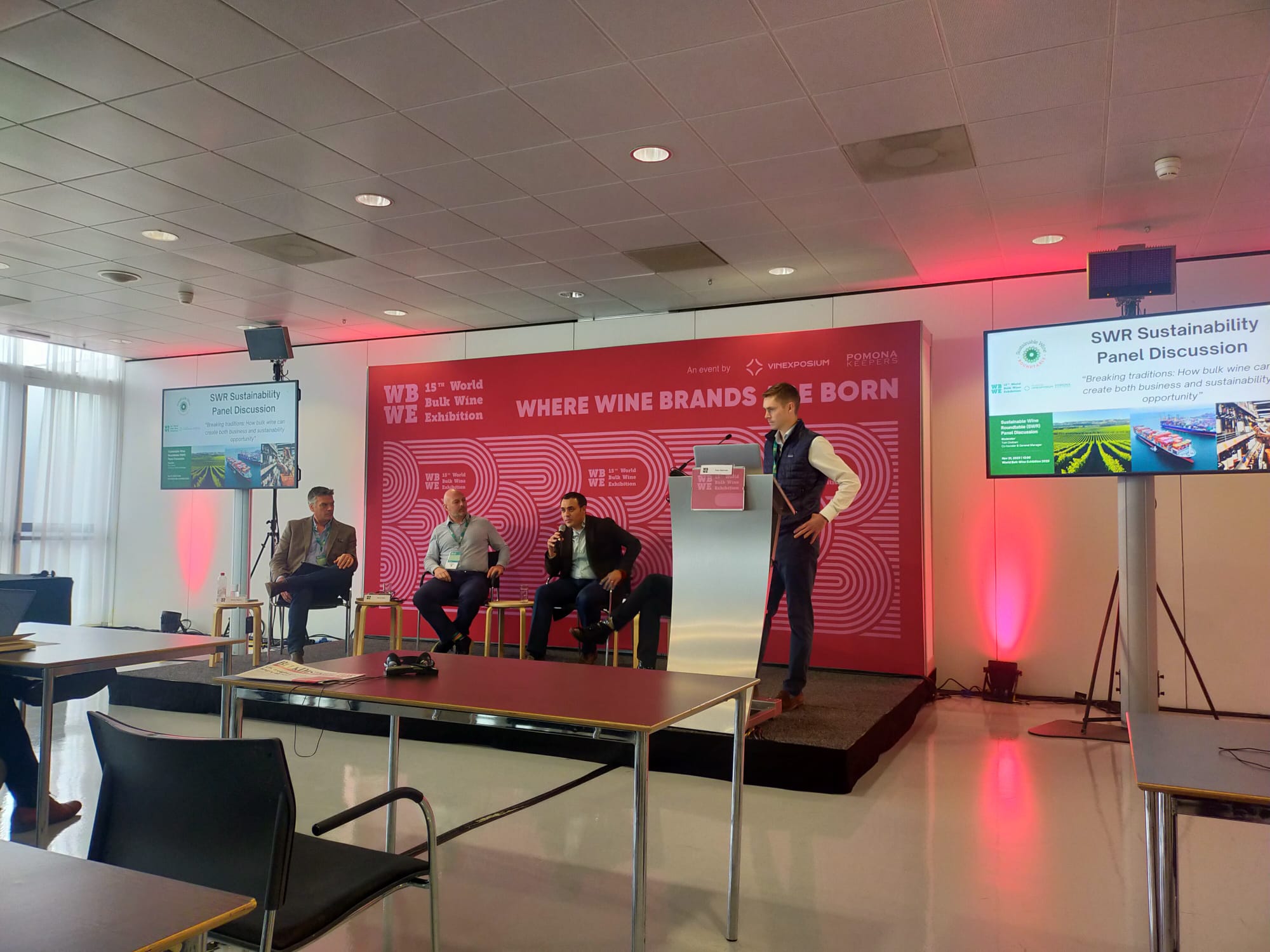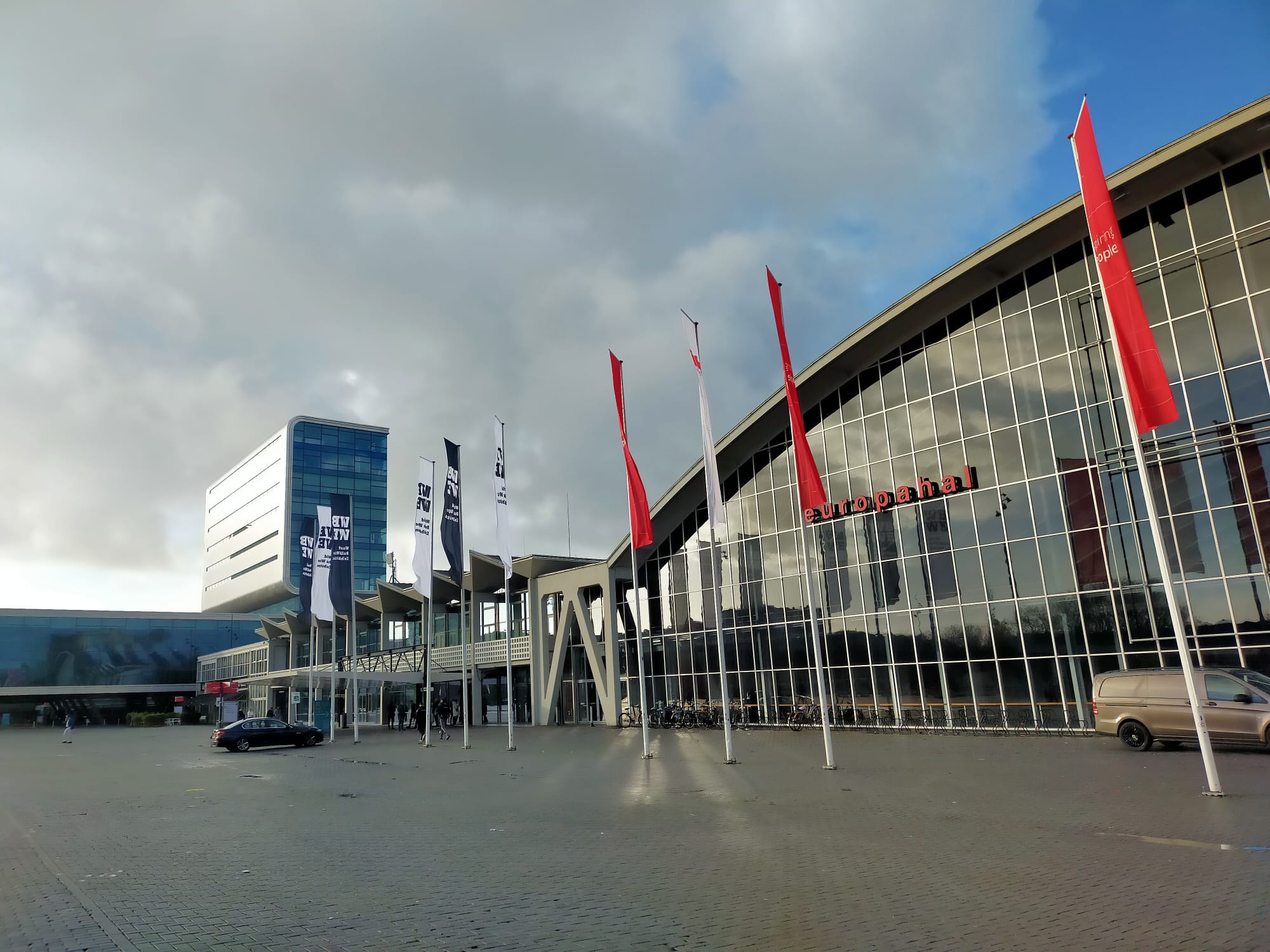- Wine Color/Type
- Top Occasions
- Unique Wines
- Surprise Me!
Bulk Wine's Role in Sustainable Entrepreneurship
Insights from the 2023 World Bulk Wine Exhibition
The wine industry's leaders meet at the World Bulk Wine Exhibition (WBWE) in Amsterdam to discuss the future of wine at the Sustainable Wine Roundtable on November 21st. The focus was on "Breaking Traditions: How Bulk Wine Can Create Both Business and Sustainability Opportunities," emphasizing the benefits of bulk wine. This method involves shipping wine in large containers like flexitanks or ISO tanks to be bottled at its destination, bypassing the need for transporting individual bottles.
The conference of the World Bulk Wine Exhibition gave insight to unique perspectives. (Left to right: Simon Mason from The Wine Society, Barry Dick MW from Waitrose, Barclay Webster from Free Flow Wines, Johan Arnø Kryger of the Danish Hans Just Group, and Tom Owtram from Sustainable Wine, Photo: Peter Douglas)
A significant environmental challenge for the industry is the carbon emissions associated with glass bottles, which account for 40-70% of the total emissions in wine production. The roundtable aimed to reduce the average weight of standard 750 ml wine bottles as part of their commitment to sustainability. Beyond packaging, the SWR is also mindful of the broader effects of climate change on vineyards, with a potential 1.9°C temperature rise by 2100 threatening wine-growing regions.
The Environmental Hurdle
Barry Dick MW from UK's Waitrose highlighted the evolving view of bulk wine shipping, now seen as a sustainable and efficient practice. This shift in perception is part of a broader industry trend toward reducing carbon footprints through bulk shipping. Flexitanks, which are more economical and efficient than traditional shipping methods, also offer quality advantages, as wine in these containers is less likely to suffer from temperature-related issues compared to bottled wines.
The UK-member-based company Wine Society's commitment to achieving net-zero carbon emissions by 2040 includes optimizing shipping processes and transitioning to UK-based packaging. Barclay Webster from Free Flow Wines showcased their approach with over 90% of their wines shipped in bulk, aligning with sustainability goals and offering new opportunities in wine production. Additionally, innovative packaging alternatives like Bag in Box (BIB) and recycled PET bottles are gaining popularity among consumers, signaling a shift towards eco-friendly options. Johan Arnø Kryger from the Danish Hans Just Group also noted the growing perception of BIB wines as premium products in Nordic countries.
The Event debuted its 15th year. (Photo: Peter Douglas)
A Challenging Future
The roundtable discussions also touched on the potential for future taxation on emissions, underscoring the importance of emission reduction strategies. NielsenIQ data suggests that sustainability claims can significantly enhance product performance by 17%, indicating a shift in consumer preferences. Governmental roles, such as climate labeling initiatives, are crucial in fostering sustainable practices in the industry.
As the wine industry evolves, there is a clear focus on reducing emissions, adopting sustainable packaging, and meeting changing consumer preferences.
About the Sustainable Wine Roundtable (SWR)
The Sustainable Wine, a London-based non-profit with global reach, focuses on promoting sustainability in winemaking. It serves as a platform for sharing news, podcasts, and updates related to sustainability in the wine industry and advocates for policies that support sustainable practices. The SWR is dedicated to mainstreaming sustainability in winemaking, providing a framework for sustainability standards, sharing best practices, and serving as a center for communication and learning.
Peter Douglas
Latest articles


